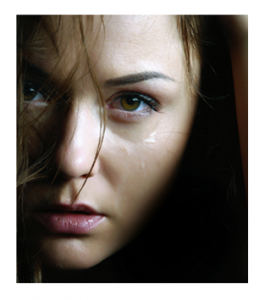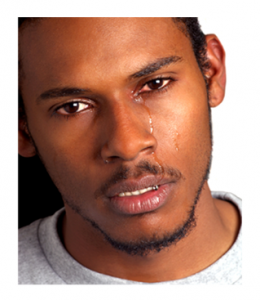Much was made about President Obama’s shedding of a tear or two last week – first, during a speech on Monday, and a second time the night of the election, when thanking his campaign staff and supporters.
 It’s rare to see our leaders display the complex emotions that generally generate tears, but not unprecedented. In fact, in American culture, in the past generation it has become more acceptable to see the male of the species mist up, while we’re expecting the female – in any professional setting – to keep any show of emotions under wraps.
It’s rare to see our leaders display the complex emotions that generally generate tears, but not unprecedented. In fact, in American culture, in the past generation it has become more acceptable to see the male of the species mist up, while we’re expecting the female – in any professional setting – to keep any show of emotions under wraps.
As to why men and women spill their tears with more or less frequency – or individuals for that matter – culture plays some role, but there are hormonal differences which tend to make the feminine gender more likely to be weepy. Note – I said likely. Most of us are not making our way through life in a pool of salty excess.
So what about having yourself “a good cry” now and then?
As my eyes have been strained lately, I’m avoiding tearing up at every turn. Yes, I’m one of those – deeply affected by the beauty of a painting, a sparkling passage in great literature; hell – a touching commercial is enough to make me misty. But given the hours my peepers pour over screens of all sorts (like so many of us), weepy is the last thing I need to be or I’m paying the piper with dry, burning eyes for days.
Life being what it is – frustrating, tiring, disappointing – as well as exhilarating, poignant, jubilant – sometimes, we just need a good cry. So I’m feeling even more frustrated at reining in a natural outlet, appropriately expressed, and in the privacy of my own home.
Crying Therapy?
In a recent article from The New York Times, “I Cry, Therefore I am,” Professor Michael Trimble explores both the mysteries and characteristics of our tearful responses to circumstances.
He writes:
Around [age] three to four months, the relationship between the human infant and its environment takes on a more organized communicative role, and tearful crying begins to serve interpersonal purposes: the search for comfort and pacification. As we get older, crying becomes a tool of our social repertory: grief and joy, shame and pride, fear and manipulation.
Citing some of the differences in crying by various demographics, Professor Trimble explains:
Women cry more frequently and intensely than men, especially when exposed to emotional events. These differences seem to emerge around puberty, which may be related to hormonal changes but also to the influence of gender stereotypes…
Men not only cry for shorter periods than women, but they also are less inclined to explain their tears, usually shed them more quietly, and tend more frequently to apologize when they cry openly…
Gender Differences in Expressing Emotion
 I readily concede that once upon a time, many women used tears to their advantage. As the Times article mentions, some may use crying as a means for manipulation. It’s not my style personally, but isn’t it true that we’re often more receptive to signs of vulnerability or distress than a stoic or insistent face?
I readily concede that once upon a time, many women used tears to their advantage. As the Times article mentions, some may use crying as a means for manipulation. It’s not my style personally, but isn’t it true that we’re often more receptive to signs of vulnerability or distress than a stoic or insistent face?
While I don’t practice “tears as tool” myself, I’ve certainly seen it done – not only by women but let’s face it, our children.
As for men, I’ve known a few who mist or cry at what seems an appropriate time – a painful departure, the loss of a loved one, or the birth of a child. I’ve also known men who, as far as I can tell, have not shed a tear as adults for any reason. Frankly, there have been instances when the absence of tears was more surprising than outright sobbing would have been.
I understand this has to do with personality as well as upbringing, yet the inability to cry seems sorrowful in and of itself.
To Cry or Not to Cry: That is the Question
Having raised sons, I never gave them the usual “boys don’t cry” talk that so many were once given, and likely still are. Yet their childish propensity for tears, which we all possess, seemed to dry up by age 12 or 13. An exception comes to mind: one of my sons wept openly with me when we discovered our beloved family dog, dead. She was 14; he was 16.
Had he not released that emotion – our dog was very much his companion since early childhood – I would have been saddened and surprised. There is no question in my mind that shedding a tear or having a good cry is tremendously beneficial. And also, in its way, respectful of the value accorded the relationship or incident that causes such a response.
All the more reason I miss my easier access to spilling tears, but recognize that there will always be events – joyful and otherwise – in which there’s not a dry eye in the house. Including this house.
On that note, I’m headed for the eye drops, and reminding myself to blink blink blink while working online.
- What makes you cry?
- Have you observed your children’s changing patterns toward crying?
- Are you a “boys don’t cry” household?
- Do you use tears as a tool, or solely a healthy emotional outlet?
- What was your reaction to seeing President Obama discreetly shed a tear?
I cry over sad movies or happy movies. I cry out of joy and sadness. I am an easy crier when something hits me emotionally.
Age can be a factor — some men can get more sentimental (and some women less so — think of changes in hormone proportions) as we get older. I can be a sentimental old fool nowadays. Of course, very sentimental movies and sometimes music could always get to me. I never saw my mother cry , nor my father — they were good, loving, while still very stiff upper lip and no self pitying.
I think sentimentality is underrated, Paul. 🙂
«Miserable men, whose hearts don’t know how to love and haven’t experienced the sweetness of crying!»
Voltaire
Crying has so many purposes, but foremost it’s a powerful way to evacuate strong emotions. There is something sensual in crying and there is a clear medical claim that it eliminates toxins and the same process your body is secreting a natural sedative analgesic.
So why would boys or men be bereft of this wonderful and so natural means to be restoring a balance when our strongest emotions have turned us upside down?
I can not cry on demand but most everything makes me cry, go figure! Of course if I see someone else crying it makes me cry. I am a proponent of no visible crying at work because I think you lose your credibility and become a “Weeping Wendy”, instead of the working professional you are!
No visible crying at work! Oh, Haralee – that’s priceless!
dearest D
we cried most recently at the opening scene of All The Real Girls (2003?).
when Paul kisses her hand……
wept. buckets.
and it was only the beginning of the film…..
waving from manhattan.
_teamgloria xx
I leak at the drop of a hat, it seems to me. It’s almost a joke around here that crying lets you pee less often. Sad or happy, I’m used to pulling out my hanky. My impression is that British men cry more easily than American – it’s not a big deal one way or the other – not the macho thing it is where I grew up. I do remember a time in my teens and early 20s when I specifically went to the movies to enjoy a ‘good cry’. Something about releasing pent up emotions. Seems a little strange looking back on it. I remember my best friend, Becky, never ever cried about anything. The one time I ever saw her cry was went she was angry, in an argument with one of her brothers. I’d never seen such a thing. It was a bit scary.
I used to cry a lot, in my younger days, when frustrated in tumultuous romantic relationships. (The witnessing men considered my crying to be manipulative. Nothing could be further from the truth as I was out of control). The message, that took me a long time to GET, was, if this is how I felt in the relationship, it wasn’t the right one for me. How much time I wasted trying to make something work that never could!
We all cry – my husband, my daughter and I – from time to time. We cry at sad movies and when talking about the people we have lost. We comfort each other with presence, hugging and holding. This weeping is soft and sweet and provides a release after which I feel better.
I have occasional cries because of feeling hurt or out of frustration. These are sobbing cries that leave my eyes red and swollen and my head bursting. I rarely feel better after these cries.
I work with people who are dying and the people who care for them. I have to maintain professionalism in the midst of crisis and incredible sadness, but there are times when tears just appear in my eyes. One or two tears. Just enough to remind myself I am not hardened to this work, that I still can approach these situations with my heart.
I can’t imagine doing such wrenching work, lunaboogie. I much admire those who can – and you, for not losing your sensitivity in the process.
Thank you.
I cry when I am totally pissed off asides that nah.